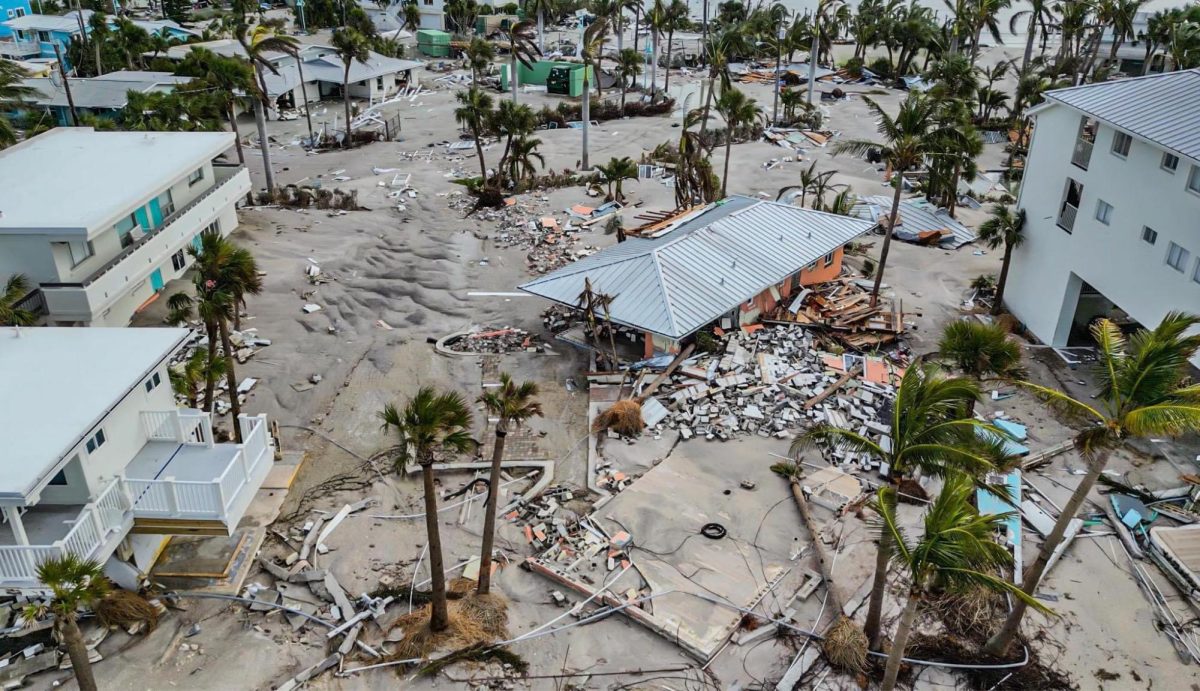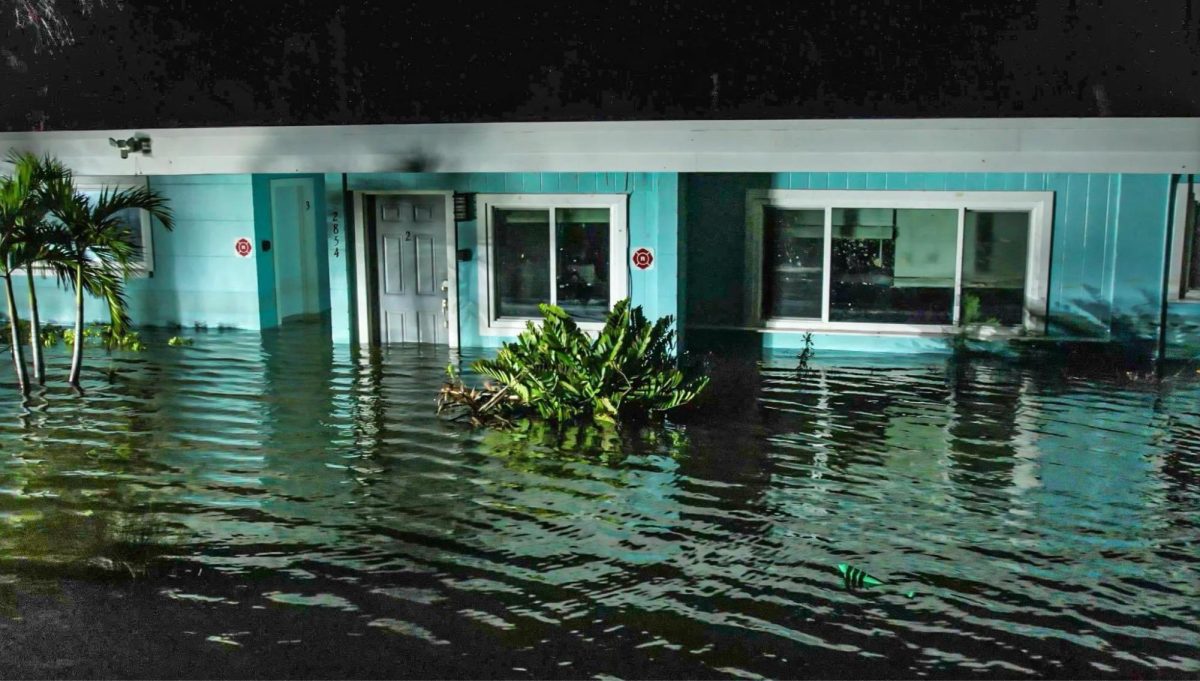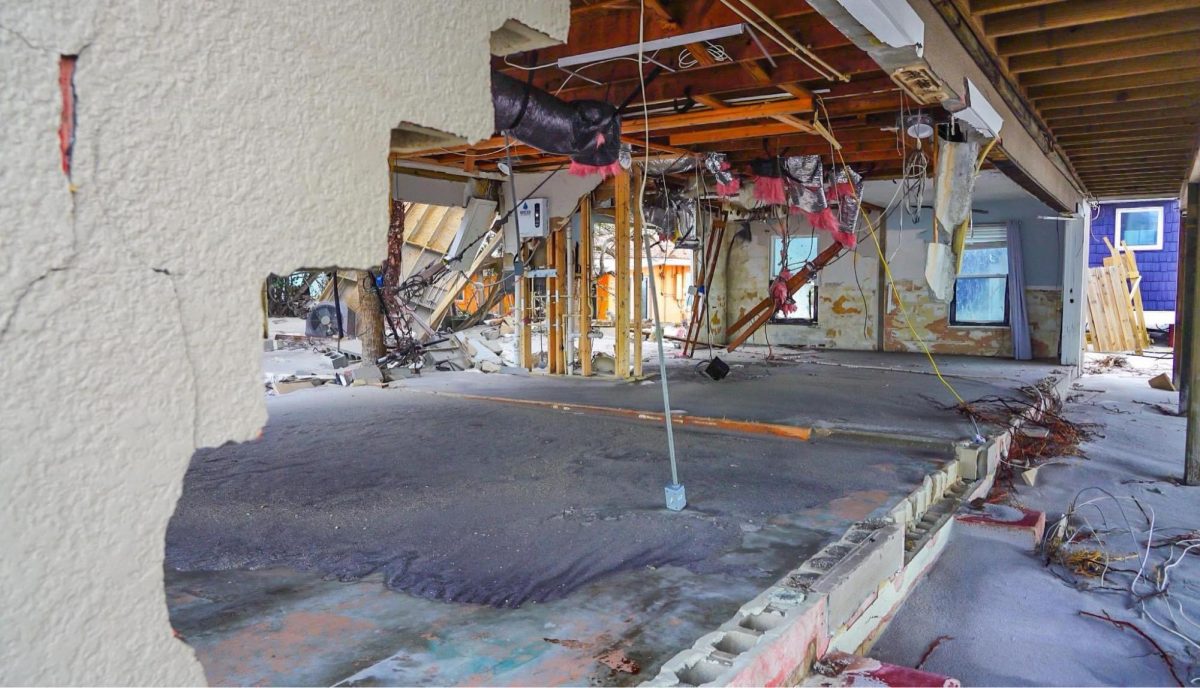
As Hurricane Milton raged through their home state last week, Emerson students from Florida reflected on the distance from their families, evacuation misconceptions, and ways to help in the aftermath.
Only weeks after Hurricane Helene drowned towns in Appalachia, the long-observed Hurricane Milton made landfall in Tampa Bay as a category 3 hurricane. The storm devastated areas of Florida, leaving millions without power, approximately $50 billion in damages, and killing over 15 people.
Carlisle Robbins, a junior creative writing major at Emerson, said he spent the night of the hurricane calling friends and family to check on them.
“You could hear the way the wind was hitting outside, dipping and flowing,” he said.
Abigail Andrews, a sophomore writing, literature, and publishing major, said, “It’s so different when you’re not there. I didn’t anticipate that.” She added she was having difficulties trying to reach her family in Boynton Beach the day of the storm. “It was something I had to mentally prepare myself for.”
Andrews said that she would have been calmer if she was in Florida when the hurricane hit.
“Floridians don’t get that worried,” she said. “People would go out and surf during the hurricane because the waves are really good.”
Andrews and Robbins said the national news coverage and social media discourse created more panic surrounding the storm.
Andrews saw videos of a tornado cutting through her hometown. “I have never seen tornado destruction like this ever in my life,” she said. “Those are the type of tornadoes that would pick up my grandma’s house.”
“There were crazy headlines about how [Florida residents] were going to die,” Robbins said. “It’s so much more anxiety-inducing being [in Boston] than being [in Florida].”
Sean Perry, a sophomore journalism student at Emerson, said that he tried to convince his father, who lives in Punta Gorda, to evacuate.
“He didn’t want to evacuate,” Perry said. “He kept reassuring me he would be okay.”
Perry’s father lives in a hurricane-proof community, where houses are made of concrete and electrical lines are buried underground.
“I was pretty worried,” Perry said. “All over social media, it seemed like the storm was … hyped up to be a once-in-a-lifetime event.”
As a hurricane approaches the coast, certain areas are typically given a designated evacuation zone. Zone A is where the hurricane is expected to hit with the most power and is usually the first area to be evacuated immediately, with zones B and C following with a reduced hurricane risk. The state recommends listening to official evacuation orders to reduce traffic and backup.

“Low-income communities, especially in the south, are not provided with the protection they need to withstand these storms,” Perry said.
Andrews said there is a lot of criticism against people who do not evacuate, but that “some people don’t have the resources for that.”
To evacuate, people need to pay for gas, temporary housing, food, and other necessities. Lack of resources and income creates what some call inequity between those who can and those who cannot evacuate.
To address this, the Florida Department of Health deployed about 600 emergency vehicles before Milton arrived to support evacuations, and there are other free evacuation shuttles across the state to shelters.
President Joe Biden visited St. Petersburg this Sunday where he announced $612 million in funding for electric grid resilience. Burying power lines can help prevent power outages in storms.
“I feel like the hurricanes are getting worse and the recovery is getting longer,” Robbins said. He criticized Florida Gov. Ron DeSantis’s policies for being discriminatory against members of the LGBTQ+ community and expressed concern for how the policies may affect rescue operations and recovery.
“Will you pull my gay brothers and sisters out of the waters?” he asked.
Robbins said the lack of state-issued aid leaves people to save themselves. He described Floridians as people who are independent in spirit, yet willing to help their neighbors in time of need. Andrews said her family is going to help with neighborhood cleanup. She encouraged people to donate to official local organizations to help rebuild the wrecked streets.
Perry said more federal action needs to be taken to improve disaster infrastructure for at-risk communities.
“It’s very difficult to see these people in danger and being removed from it,” he said.

Mia Blachman transferred from Emerson to the University of Central Florida (UCF) last year. UCF’s administration canceled classes and recommended students leave the Orlando campus before the storm. She drove to her brother in Tampa and evacuated together to their family’s house in Miami.
She said Miami was left untouched, with only a few strong winds. Around her, she reflected on the dichotomy and said people continued with their lives as if everything was normal.
“My friend’s parents were playing pickleball and you could see the tornado behind them,” Blachman said.
However, she said she also understood the mild reactions. “Being from Florida, I took my first steps during a hurricane.”
“I’m super anxious to get home [to campus],” Blachman said. She and her roommate moved furniture and emptied the house of valuables, but she expressed concerns about the flooding.
Blachman’s brother’s house is on the edge of the Tampa coast. She said she did not know if it survived the storm.
“The eye of the hurricane was at his house,” Blachman said.